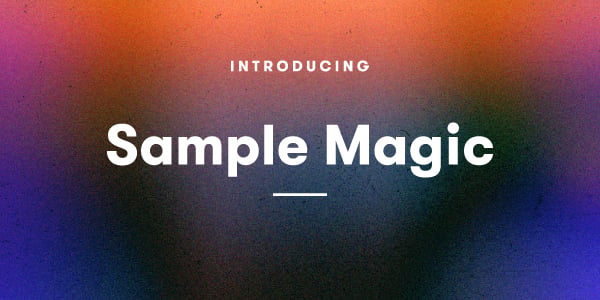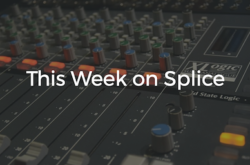Today, the iconic sample label Sample Magic comes to Splice Sounds with the release of 120 of their most popular packs.
To gear up for the launch, we sat down with Sample Magic’s co-founder, Sharooz Raoofi, to talk about the origins of the label, his perspective on how the industry is changing, and his advice for young producers.
1. Why did you decide to start Sample Magic?
I started Sample Magic completely out of necessity. I was producing a lot of music as a freelance multimedia composer at the time and the entry point for ‘Sample CDs’ as they were back then was ludicrous pricing and the sounds almost unimaginably bad. We knew loads of great producers and out of my bedroom in London started putting together packs and reaching out to distributors.
2. What’s been the proudest moment over the past 11 years?
Probably scooping the Remix Magazine Product of the Year award in Los Angeles in 2010. Also, the work we have done designing sounds and presets for Korg and other synthesizer manufacturers and starting Sounds to Sample, which Beatport subsequently acquired back in 2011.
3. What would you say makes Sample Magic unique?
It’s our creative direction. On new genres, mashes of styles and formats, we’re frequently imitated. It helps we’re all DJs and artists in our own regard. Plus of course, our artwork and marketing are always a key focus.
4. How has the industry changed since you started Sample Magic?
Hugely. Subscription models, how content is consumed, synth patches, MIDI. But at the core, our customers still want the same thing: great sounds and tools that don’t do the work for them but simply complement their process.
5. You’ve got a huge collection of hardware – would you recommend every new producer buy some equipment?
I think it’s a great idea to have at least a single synthesiser or piece of hardware if only to gain a hands-on understanding of the environment outside the box. But I’ve always said it’s never essential and incredible things can be achieved using only an iOS app or a few basic plugins. The best results are derived from working across a range of options and choosing what naturally fits one’s workflow best. There’s no hierarchy or right or wrong.
6. How much do you think people’s attitudes to using samples have changed over the last decade? Is there more of a focus on stamping your own identity on samples rather than just using sounds straight out of a pack?
No, I honestly don’t think so. We had a situation recently where a lot of people were calling out a young South African producer for rapping over one of our instrumentals and releasing the record straight to the top of the charts in that country. I liked it, man. It was a good track! It’s exactly how the sounds are intended to be used. There’s no right or wrong way to use samples.
July 25, 2017



